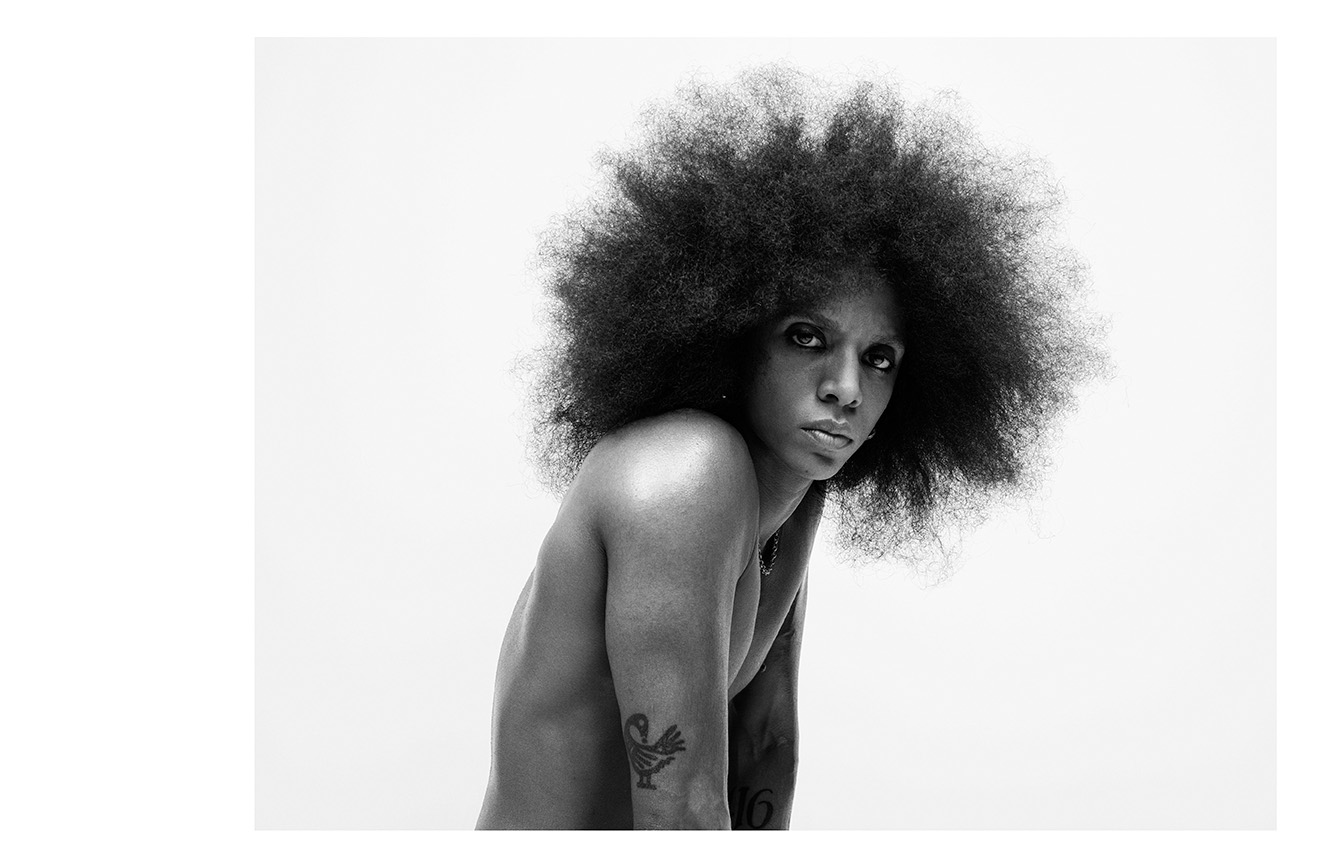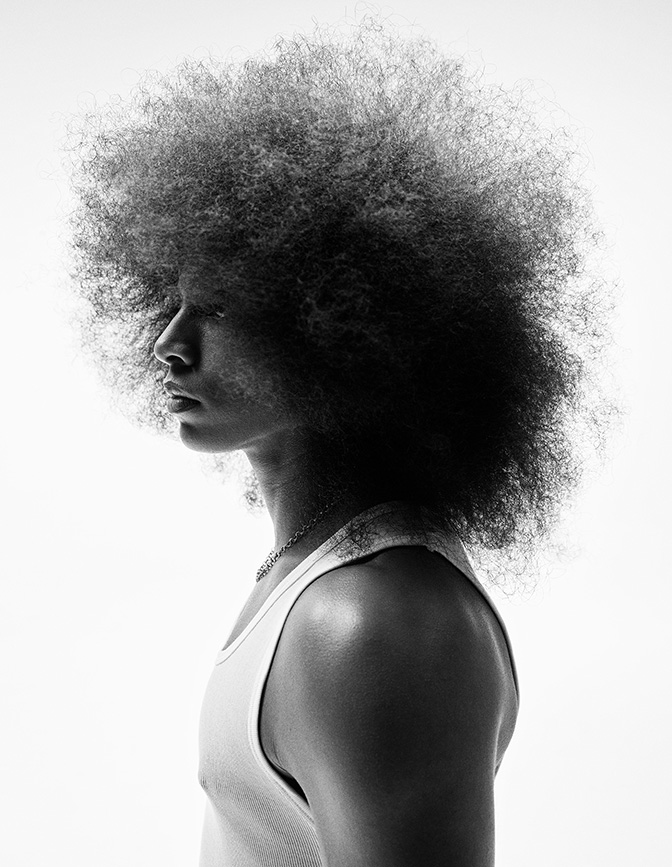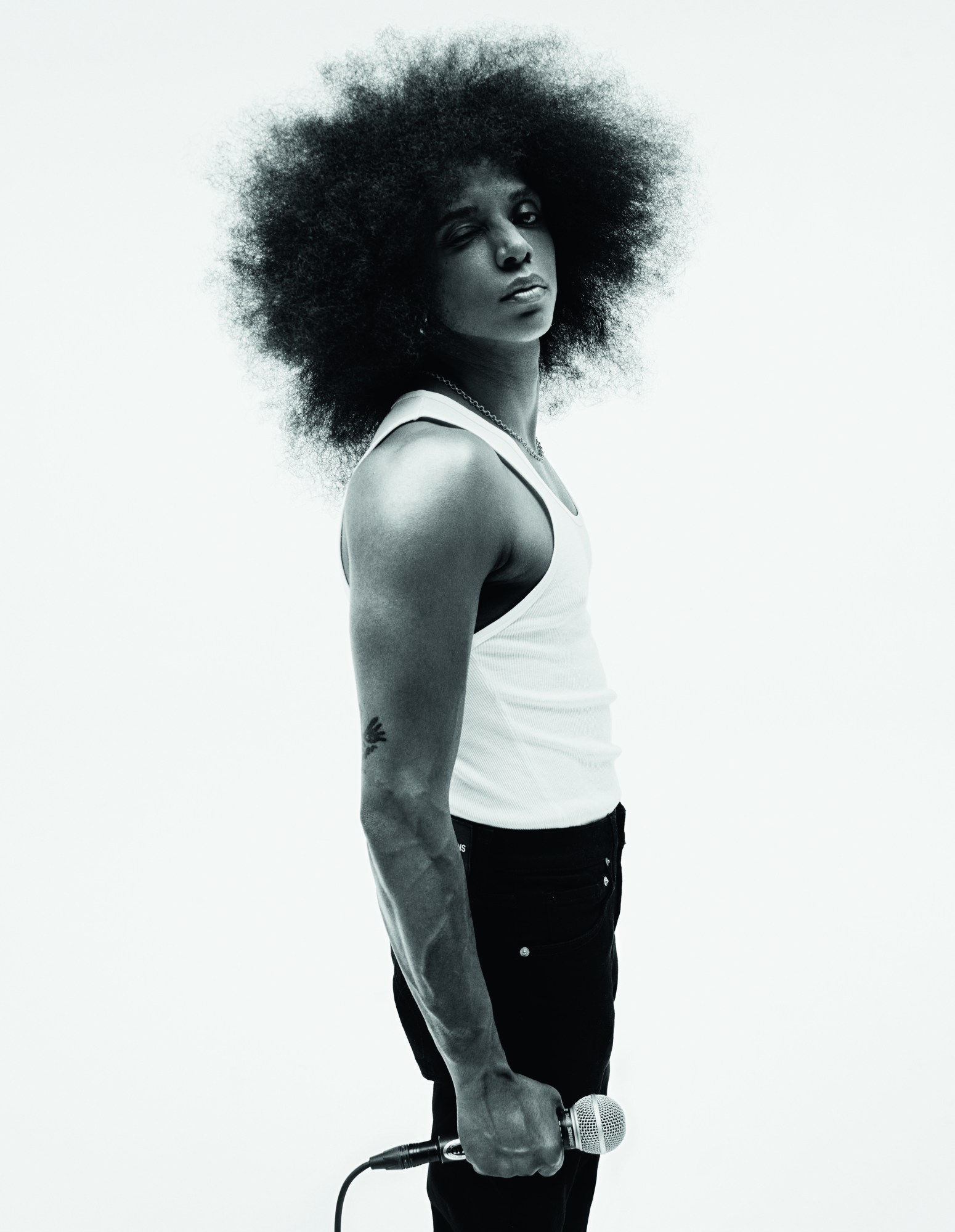This story originally appeared in i-D’s Utopia in Dystopia Issue, no. 362, Spring 2021. Order your copy here.
The sixth of January 2021 started out as a reasonably good day for democracy in the United States of America. That Wednesday morning, community organisers in Georgia were seeing the fruits of a decade-long effort to enfranchise voters from historically suppressed communities, especially those with large Black populations. The Senate races at stake were crucial, and concluded with the Democrats winning unified control of the country’s government for the first time since 2010.
It was a landmark achievement, although by the end of the day it would feel ephemeral. Activists Janaya Khan and Tamika Mallory were among those celebrating the hard-won victory — though the sitting President’s electoral demise was a relatively straightforward pleasure, the past year in politics had by no means been a simple one.
A viral pandemic had laid waste to social and economic life as we knew it, exposing some of capitalism’s less obvious flaws. Protests against anti-Black police brutality and racially motivated violence had found more public support across the world than ever before.

To come was the shift into a post-Trump world, led by a Democratic candidate who had run on a platform composed of few political values, if any. Just by merit of the past year having been 2020, the two activists had a lot to talk about.
Instead, Tamika, the co-founder of the intersectional social justice
organization Until Freedom, found herself in the midst of a personal crisis brought about by the pro-Trump rioters’ mobbing of the Capitol Building in Washington, D.C., notably facilitated by the local police. It was the violent crescendo of years of delusion, encouraged by an increasingly injured and disproportionately funded press, the accessibility and growing power of fascist disinformation forums, complementary conspiracy theories and – above all — an incredibly misplaced sense of victimisation.
Intoxicated by the idea that the Presidential election had been engineered against their messianic MAGA leader, these insurgents had become obsessed with overturning the results. The attempt – apparently to thwart the certification of President-elect Joe Biden’s Electoral College victory, but more outwardly to posture online and emphasise their freedom from accountability – was absurd and violent in nearly equal measure.
A topless QAnon supporter roamed the building’s halls with a megaphone, bearing a painted face and a Viking helmet. A few blocks away, two pipe bombs were discovered. The Senate was put on lockdown as the rioters scaled the Capitol’s walls and broke through doors. Several members of the mob wore custom T-shirts that read ‘MAGA CIVIL WAR’, in reference to the 2016 Marvel movie, along with the day’s date. There was no question that these actions were premeditated, and yet it was still posed.
Janaya Khan – a co-founder of Black Lives Matter Toronto, and a programme director of the racial justice organisation Color of Change – could not pull away from their phone as they watched the situation unfold live, struck by the media’s tepid and bewildered coverage of the event. Their conversation with Tamika to follow would cover sustaining hope, liberal complacence and complicity, the creep of white supremacy, and allowances we should never make.
Janaya: I can’t even wrap my mind around this. It’s almost incredible, in a way. If Muslims had gathered that way, if Black people had gathered that way, if Native people had gathered that way? The police would have completely mowed them down. It’s just unbelievable. Of course, this would happen when we’re supposed to be speaking to each other, because what is normal? What is normal now?
Tamika: I’ve got lots of calls coming in, my phone’s blowing up in the back. Two people that I’m very close to – one person’s father and another person, who’s actually a good friend of mine – are locked in their offices in the Capitol and unable to get out. So the situation is very, very serious.
If this was you, or if this was me, we would be dead, and people would say that we deserved it.
My friends are stuck inside of a building, barricaded in their offices. They don’t know how they’re going to get out.
This is just evil. What we’re seeing is evil. I’m putting prayers out for your people, Tamika. We need to get them out.
[The Capitol police] would have killed us. They have killed us. We would be shot. They tackled us on the streets of Louisville, Kentucky for nothing. Just for walking. There’s no way we could get away with this. There are just these constant reminders that white people can just do whatever the fuck they want.

They actually can! They actually can. They stormed the Capitol. They put tear gas out. Every step of the way, they get into violent physical clashes with the police, and nothing, literally nothing. They just brought more of their people in. A sitting Vice President was in the building at the time. A sitting Vice President.
And the President himself said, “It’s going to take force to take back our country.” And “We can’t be weak.” What does that mean? Our lives are in danger. And to have this happen the day after no charges are filed against officers for [the murder of] Jacob Blake. It’s like, why would they ever stop killing us? If this behaviour today is acceptable, why would they? No one is going to hold them accountable.
This is the thing. I understand that part of our responsibility is to show people: “This is where we could get to. This is where we could go.” That’s what organisers do. “These are the steps that we need to take to change things, and to keep people alive.” And when moments like this happen, the kind of violence, and hatred, and white supremacy that’s been normalised here, makes it almost damn near impossible. It is so ingrained. The Overton window has shifted so far to the right that it makes our jobs that much harder. So for every win that we have, there’s a huge push to the right. And we are the only ones talking about this the way it should be. I’m listening to the news media right now – they have no idea how to report on this. They’re still referring to this as a protest.
The other thing that’s really dangerous is there are elements of our community that believe that the way to deal with the oppression against us, is to do the same thing that these folks are doing. So having to be the one constantly in the middle, saying, “This is not the right way,” and yet watching these other people throw a tantrum and nothing happen to them – how can we keep going back to our people, over and over and over again, telling them to just die and be silent about it, basically. Not that we are silent, but it feels like silence. After Trump, this country will definitely never be the same. And I don’t want people to be dead, but today, to know that nobody [will die as a result]? My phone is full of text messages saying, “They would have killed us.”
Yes. And that’s just it. We have never called for the same kinds of treatment that we’ve received from this country to happen to anybody else. So the idea that we’d be so limited in our thinking as to say, “This should happen to you as well”. No. It’s the hypocrisy of it. It’s the hideousness of that hypocrisy, it’s the carelessness. And the cruelty that Black people are treated with in this country. I mean, Georgia just happened. Really, both races are confirmed – we flipped the Senate. We got the Black vote mobilised, outside of every effort to silence it, to repress it, to disenfranchise it. They say, “This is a democracy,” and everything else. Every time that we push and fight for something there is a massive white backlash, of which Black people experience the worst kind of reality. If we can’t call this what it is, if there’s not a language for it, we can’t confront it.
I don’t hear anybody on TV. I don’t hear Fox News saying that they are thugs.
Nancy Pelosi is just calling in the National Guard. Think about how quickly the National Guard gets deployed when Black people have just simply gathered.
Oh, beforehand! If we had said we were going to DC with the same type of hostility in our messaging, the National Guard would have been there already, all the buildings would have been protected. They actually allowed these folks to run around in the Capitol – we never would have made it inside.
This is straight-up fascism. We talk about that, we’ve named that. And here is my issue: this notion of conservatism is dead. There is no conservatism. The kind of austerity and just right-leaning politics that I think the GOP and so many right-wing thinkers have hidden behind – really it’s been the moderates and the progressives that have enabled this sort of belief, this smoke and mirrors concept of conservatism. There is no true conservatism anymore. Because if there was – and I’m not even interested in that discussion – it has moved so far to the right. Racism has never been a deal-breaker. The murder of Black people has never been a deal-breaker. Mass incarceration has never been a deal-breaker. The end of social support and resources has never been a deal-breaker. National crises like Hurricane Katrina have never been a deal-breaker. These are people who have been going ever-further to the right. In fact, so have the Democrats. This is what I’m really concerned about right now. Because they’ve been telling us who they really are: the GOP, Mitch McConnell, Ted Cruz, Mike Pence, Trump, and all their acolytes—
Lindsey Graham, Chuck Schumer, all of them.

All these “progressives”, and all these centrists, and all of these establishment Democrats. After Biden was elected, the first thing that they did was say that they were going to reach across the table. My question is, why are you more comfortable reaching across the table to bigots than you are to Black people who got you into office in the first place. Why do you see more of yourself in bigots than you do in Black people?
These are the people you want to work with? And Joe Biden stands up on TV and says, “They are not our enemies.” Really? My people who are stuck in the Capitol – they don’t feel like they are their friends right now. I need to go actually, call them, and try to see what we can work out. I’m going to DM you, and we’ll connect again. I’m sorry.
[Ends]
Later that day, as if coaxing an infant to sleep, Trump told his violent mob of supporters, “Go home, we love you. You’re very special.” After hours of chaos, he begrudgingly issued the statement via video on Twitter. “We can’t play into the hands of these people,” he said, pretending as if he hadn’t personally encouraged the insurgency at his rally earlier that day. “Go home, and go home in peace.”
The slow, empty gesture of course did nothing for the already traumatised workers on Capitol Hill, nor did it convince anyone that the attack was anything other than an elaborate show of disregard by people who have shown themselves, time and time again, to be nothing but self-interested and incapable of compromise.
“America is so much better than what we’re seeing today,” said Joe Biden, in the aftermath of the violence. But pandering to this narrative, where the United States was not built on slave labour and sustained by fatuous economic inequality and mass incarceration, can no longer be done in the name of unity. People like Tamika and Janaya have known this for years, and it’s far past the time the Democrats should be listening.

Credits
Photography Mario Sorrenti
Styling Alastair McKimm
Hair Johnnie Sapong for Leonor Greyl at Salon Benjamin.
Make-up Aaron de Mey at Art Partner.
Nail technician Marisa Carmichael at Forward Artists.
Set design Philipp Haemmerle.
Lighting technician Lars Beaulieu.
Photography assistance Javier Villegas and Robb Epifano.
Digital technician Chad Meyer.
Styling assistance Madison Matusich and Milton Dixon III.
Make-up assistance Tayler Treadwell.
Production 138 Productions.
Tailors Martin Keehn and Keke Cheng.
Model Janaya Future Khan.
Special thanks to Calvin Klein.

